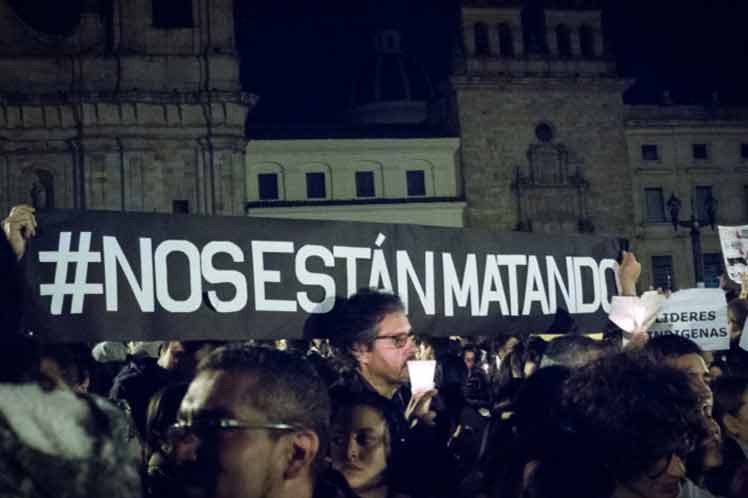
Total deaths were located in 29 of the country's 32 departments.
By María Josefina Arce
2021 was not a good year for Colombia, a nation that is unable to get out of the violence that is spreading throughout the territory under the ineffective management of the government presided by Iván Duque, who currently has barely 20% of acceptance.
The reality is that the year has not yet ended and already the South American country equaled and surpassed the number of massacres registered in 2020, which was 91. In that period, 381 people were killed in 66 municipalities.
The latest report of INDEPAZ, Institute of Studies for Development and Peace, indicates that 92 massacres in 70 municipalities have already been recorded, four more than the previous year.
The departments with the highest number of these criminal actions are Cauca and Antioquia, the latter repeats in the balance of more victims due to these events.
Between January and last December 24, 168 social leaders and 48 signatories of the Peace Agreement, signed in 2016 in Havana between the former guerrilla Revolutionary Armed Forces of Colombia-People's Army and the government of then President Juan Manuel Santos, were killed.
From that date to the present, THOUSAND 283 homicides of leaders have been committed, of which 885 have taken place under the mandate of President Duque.
It is also worrying that practically all 32 departments of the country report the presence or activity of illegal armed groups, in many cases linked to drug trafficking and disputing the different territories.
A phenomenon closely linked to the spiral of violence in Colombia is forced displacement. From January to November last year, almost 83,000 Colombians were forced to leave their homes.
The Consultancy for Human Rights and Displacement warned that this figure represents a growth of 169%, compared to 2020. The most affected population groups are indigenous people and Afro-descendants.
But violence also came from the hands of police officers. The use of force was excessive during the national strike that took Colombians to the streets from April to July in protest against a tax reform promoted by the government.
Dozens of fatalities, 103 people with eye injuries, 60 cases of sexual assaults and numerous arrests were the result of the violent repression.
A UN report stated that at least 28 of the deaths registered were the work of the forces of law and order.
Violence continued to be part of everyday life in Colombia in 2021. The government of President Iván Duque continued to make no progress in the implementation of the Peace Agreement, which includes the necessary mechanisms to put an end to the spiral of violence that is shaking the South American country.

